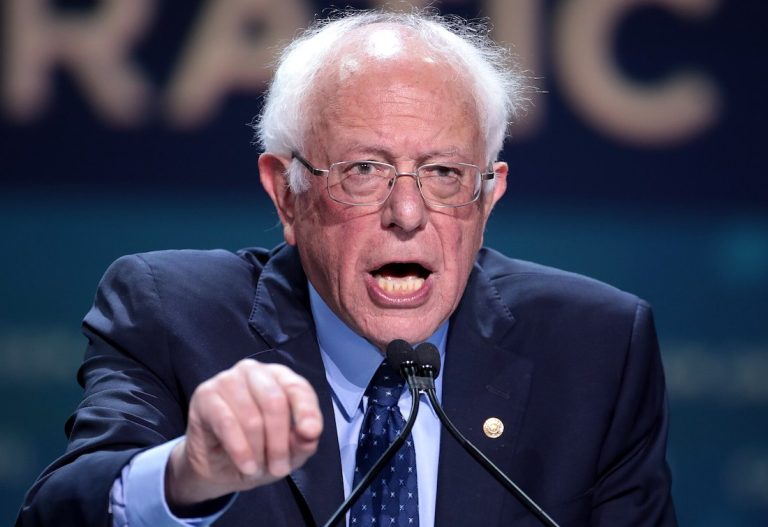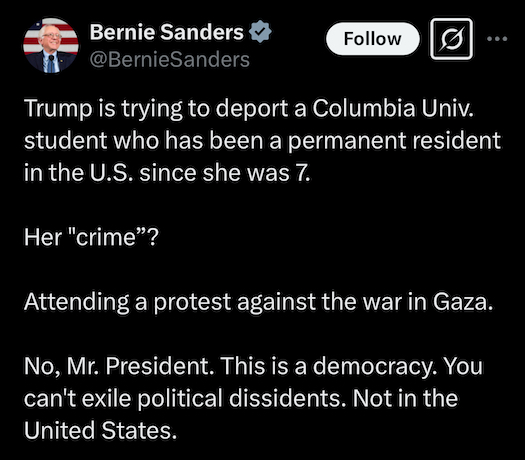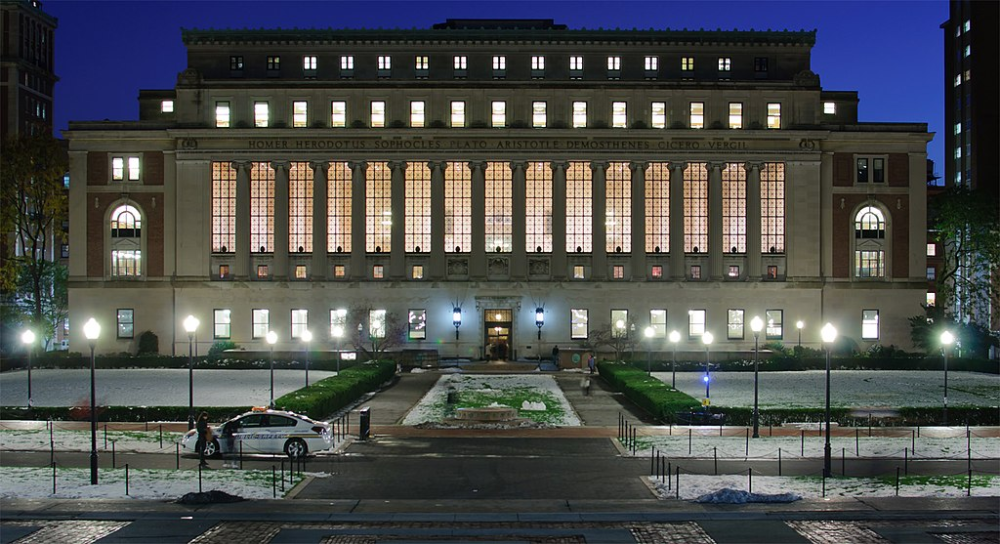
New York, N.Y. — In a scathing rebuke to President Donald Trump, Senator Bernie Sanders (I-Vt.) has condemned the administration’s efforts to deport a Columbia University student for her involvement in pro-Palestinian protests. The case has ignited a fierce debate about free speech, immigration policy, and the rights of political dissenters in the United States.
Yunseo Chung, a 21-year-old legal permanent resident who has lived in the U.S. since moving from South Korea at age seven, found herself at the center of a political firestorm after participating in campus demonstrations.
The Trump administration’s attempt to arrest and deport Chung has been met with widespread criticism and legal challenges.
On Tuesday, a Manhattan federal judge ordered the administration to halt its efforts to detain and deport Chung, noting that government attorneys failed to provide evidence that she posed any danger or threat to U.S. foreign policy. This ruling came as a relief to Chung, who expressed her gratitude, stating, “After the constant anxiety I’ve felt over the past few weeks, this ruling feels like a weight has been lifted off my shoulders.”

Senator Sanders, known for his advocacy of civil liberties and immigrant rights, took to social media to defend Chung and deliver a pointed message to President Trump. “No, Mr. President,” Sanders declared. “This is a democracy. You cannot exile political dissenters. Not in the United States.” His statement underscores the fundamental principles of free speech and political expression that are cornerstones of American democracy.
The case against Chung began earlier this month when she was arrested during a sit-in protest at Columbia University. She was initially released with a misdemeanor charge of obstructing governmental administration.
However, days later, Immigration and Customs Enforcement (ICE) agents attempted to locate her, searching her parents’ residence and university accommodations.
Chung’s legal team argues that the deportation efforts are “unprecedented” and “unjustifiable,” representing an attack on First Amendment rights. They contend that immigration enforcement should not be used as a tool to penalize noncitizen speakers who express political views unfavorable to the current administration.
The Trump administration’s actions have drawn parallels to the case of Mahmoud Khalil, another former Columbia student and pro-Palestinian activist who faced similar deportation threats. Both cases have raised alarms about the potential use of immigration policy to suppress political dissent.

Legal experts and civil rights advocates have expressed grave concerns about the implications of these actions. Naz Ahmad, one of Chung’s lawyers and co-director of Creating Law Enforcement Accountability & Responsibility (CLEAR), stated that the administration’s “efforts to punish and suppress speech it disagrees with smack of McCarthyism.”
The case has also sparked outrage among academics and students across the country.
Professors from various U.S. universities have described the targeting of Chung as “frightening” and “absolutely chilling to free speech.” The controversy highlights the tension between national security concerns and the protection of civil liberties, particularly for immigrant communities.

Chung’s lawsuit names several high-ranking officials as defendants, including President Trump, Secretary of State Marco Rubio, U.S. Attorney General Pam Bondi, and Homeland Security Secretary Kristi Noem.
The legal action seeks a temporary restraining order to prevent the government from detaining Chung based on her protected speech.
As the case unfolds, it continues to draw attention to broader issues of immigration policy, political expression, and the rights of noncitizens in the United States.
Critics argue that the administration’s actions set a dangerous precedent that could have a chilling effect on political activism and free speech, particularly among immigrant communities and on college campuses.
Senator Sanders‘ vocal support for Chung and his criticism of the Trump administration’s tactics have galvanized supporters of civil liberties and immigrant rights.
His intervention underscores the high stakes of this case, not just for Chung personally, but for the broader principles of democracy and freedom of expression in America.
As the legal battle continues, the eyes of the nation remain fixed on this case, which has become a flashpoint in the ongoing debate over the limits of executive power, the rights of immigrants, and the protection of political dissent in the United States.
The outcome of Chung’s case may have far-reaching implications – for how the country balances national security concerns with the fundamental rights enshrined in the Constitution.
Sanders Slams Trump’s Attempt to Deport Columbia Protester (March 26, 2025)